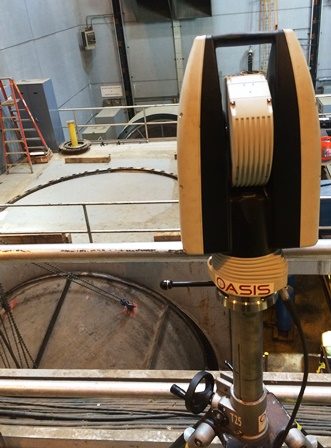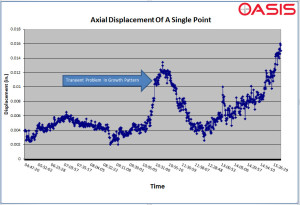Large and small machinery is susceptible to the effects of temperature variations due to fundamental properties of materials at the molecular level. Basically, when various materials change temperature, they change dimensionally. When the size of the components affected is considerable, the coefficient of thermal expansion of the material is high, and if there is enough temperature difference, a machine’s alignment can be severally impacted.
In turbo machinery in particular, tight tolerances and clearances between components, high throughput expectations, and extreme thermal conditions, make the various machines prone to misalignment caused by thermal growth. Theoretically and by design, thermal expansion is usually accounted for by designing in such a way as to let components grow evenly or in a direction that doesn’t affect critical components. In the real world however, when machines are installed, have run for several years and have settled, or have undergone maintenance, components do not always behave in a theoretical way. The problem is that you can’t get inside the material to analyze exactly how it is behaving, nor can you measure running components of turbo machinery while in operation to find out how components move relative to each other.
A Thermal Growth Study is a means of analyzing the effects of thermal growth on the outside of a machine while in operation and interpreting the results as they relate to the internals of a machine. Furthermore, the hot running conditions are compared to the cold or even transient conditions to further analyze the behavior or patterns of growth of the various components. A lot of knowledge can be gained by analyzing a thermal growth study. Growth trends can be studied for all measurement points and in all attributes. Sometimes lateral or vertical components of growth are found where only axial growth was expected. The temporal behavior of the growth can also be looked at in relation to the temperature and loads of the system. Occasionally problems can be found with friction pads or linear ways that indicate sticking or binding and then release. This type of problem can cause severe vibration in a system that is extremely difficult to pinpoint due to the transient nature of the problem.
One of the greatest benefits of a thermal growth study is to allow for proper cold alignment of a turbo machine train. Typically a large thermal power generation unit is comprised of different sections such as a high pressure turbine, an intermediate turbine, and one or more low pressure turbines, coupled to a generator. Under operating conditions, these sections must be aligned perfectly to avoid vibration, coupling wear, and to optimize process throughput. Due to their physical conception and construction of the support structures beneath them, these components do not typically thermal behave in the same fashion. For this reason, the alignment, which is done under cold conditions, is achieved by a combination of theoretical and empirical calculated offsets. Sometimes those calculations are not perfect. A thermal growth study performed between cold and hot conditions (or vice versa), yields exact as-built offsets for which components should be misaligned under cold conditions to achieve perfect aligned conditions under hot and operating conditions.
Thermal Growth Studies are a quick and efficient analysis tool to troubleshoot vibration or stability issues on turbo machinery in the power generation and other industries. Whether it is to analyze known thermaAxial Displacement of a Single Pointl growth issues, or to simply disprove misalignment as a cause of vibration or undue wear, a thermal growth study is the way to go.


